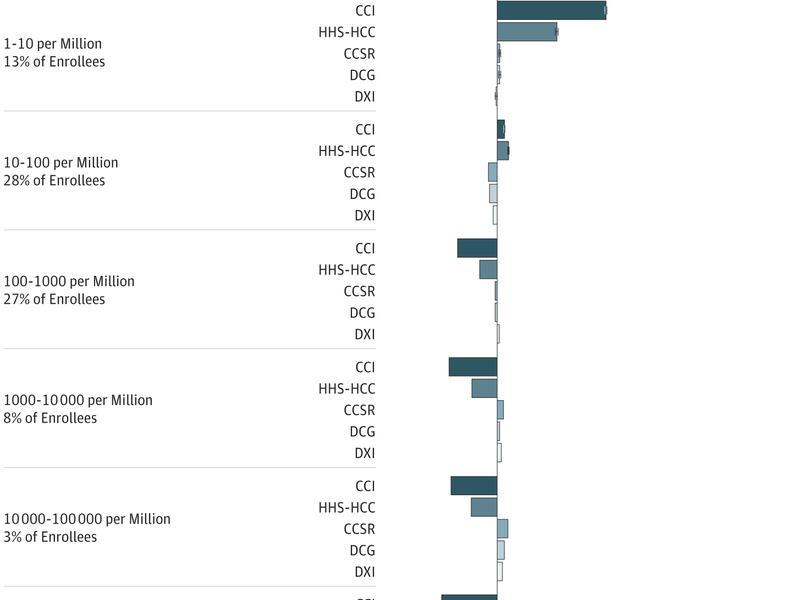This article discusses the use of a machine learning algorithm, specifically the Diagnostic Cost Group (DCG) algorithm, to predict health care spending and other outcomes from administrative records. The DCG algorithm addresses concerns about gaming and coding incentives and has been shown to predict costs better than the current HHS-HCC model. The algorithm uses clinician-specified hierarchies and excludes vague and gameable diagnoses to achieve a higher R value and reduce underpayments for rare conditions.

